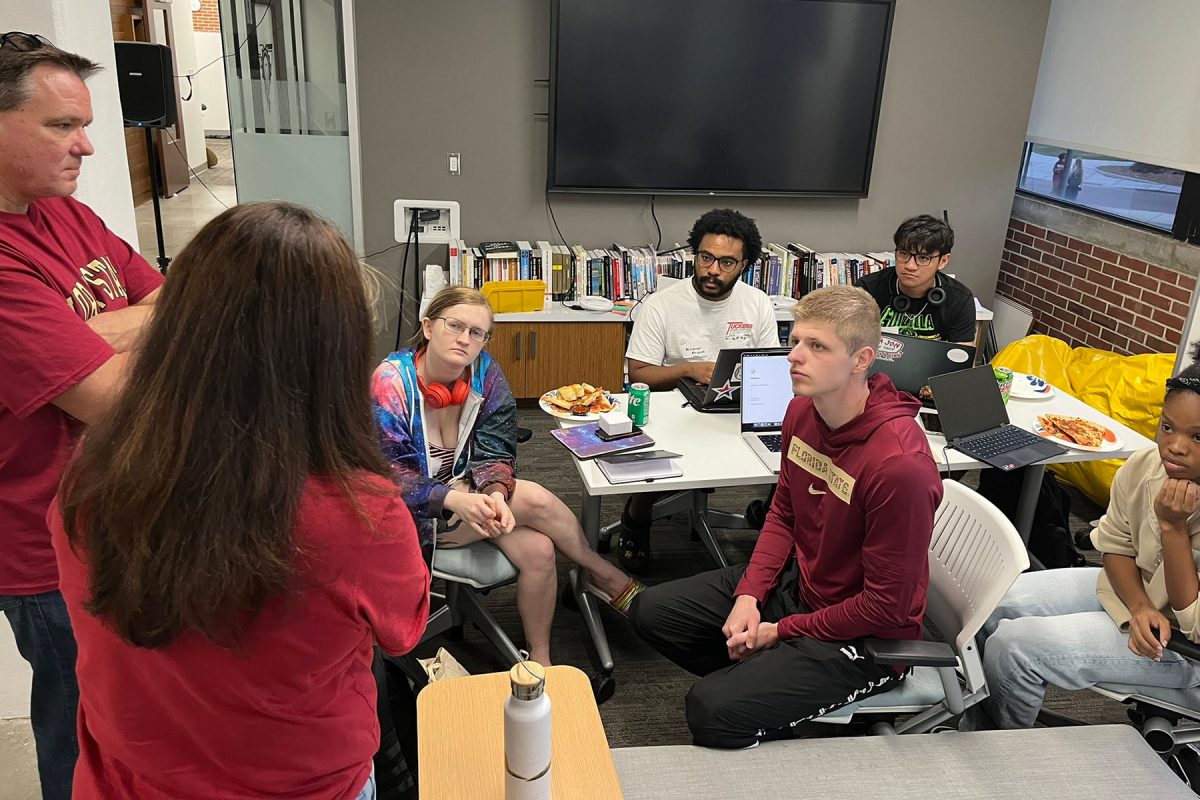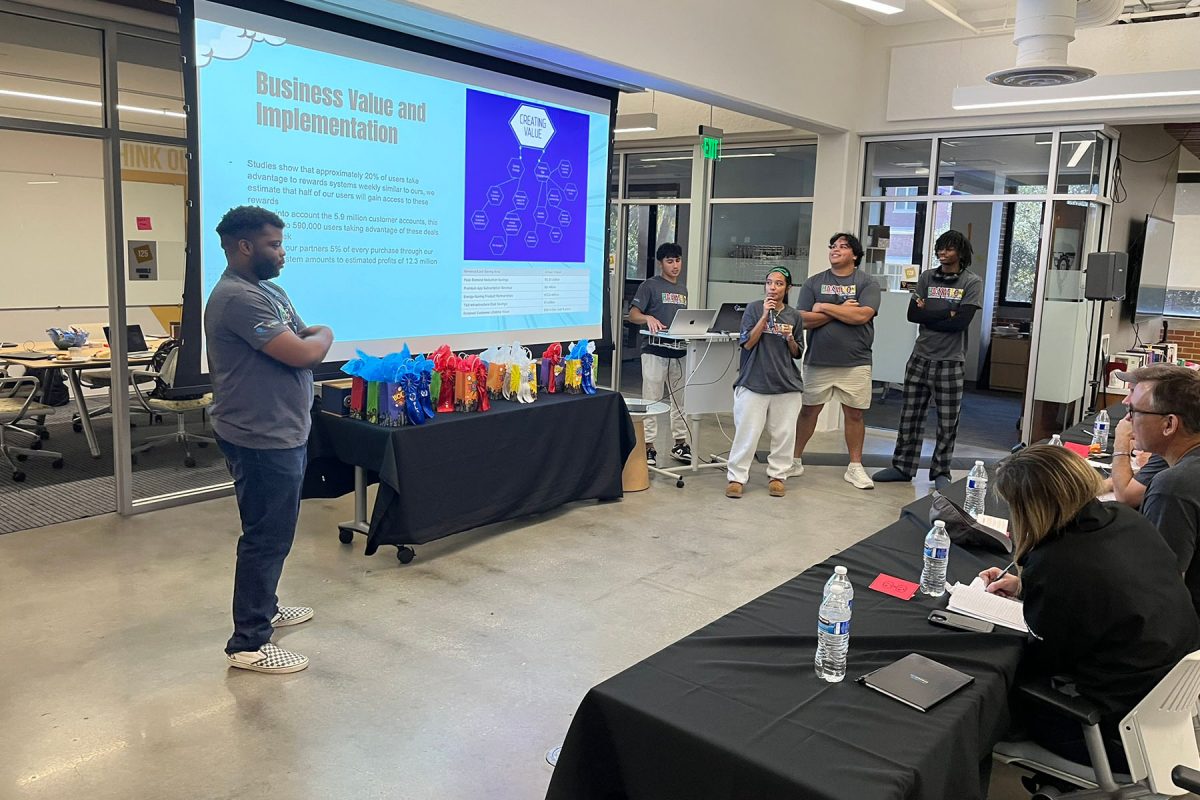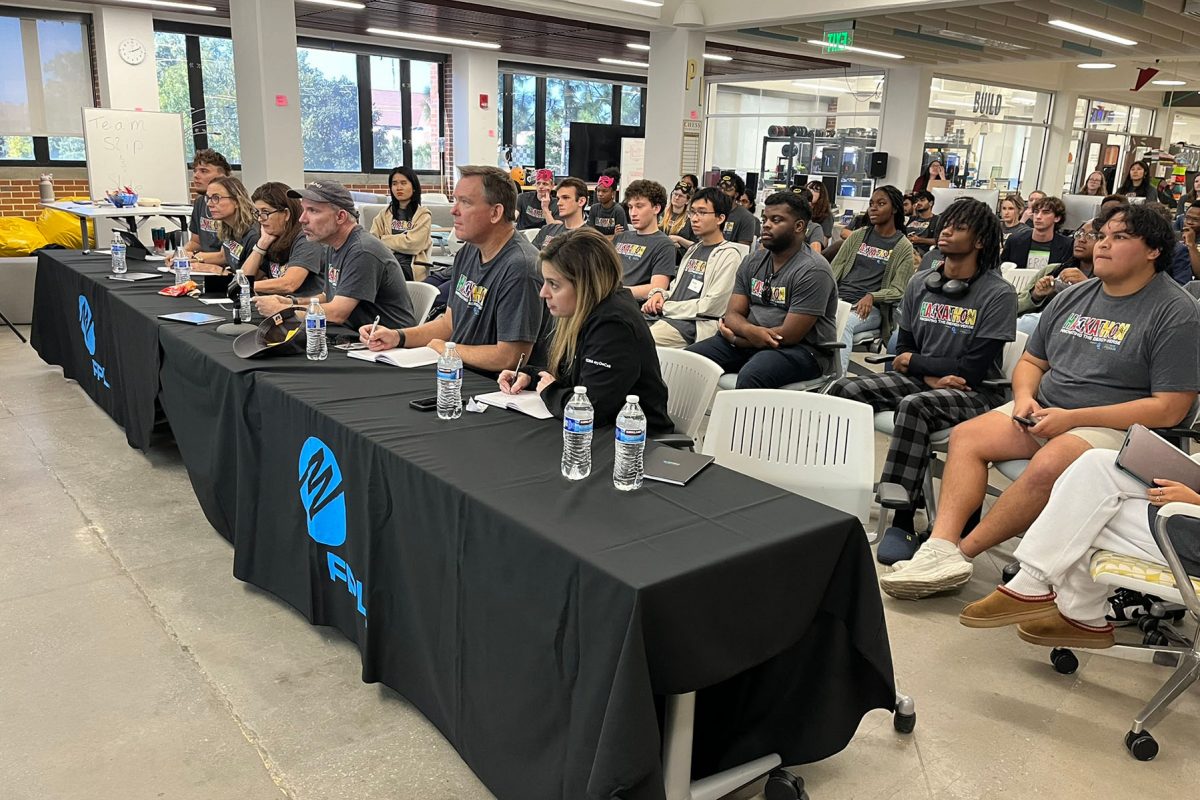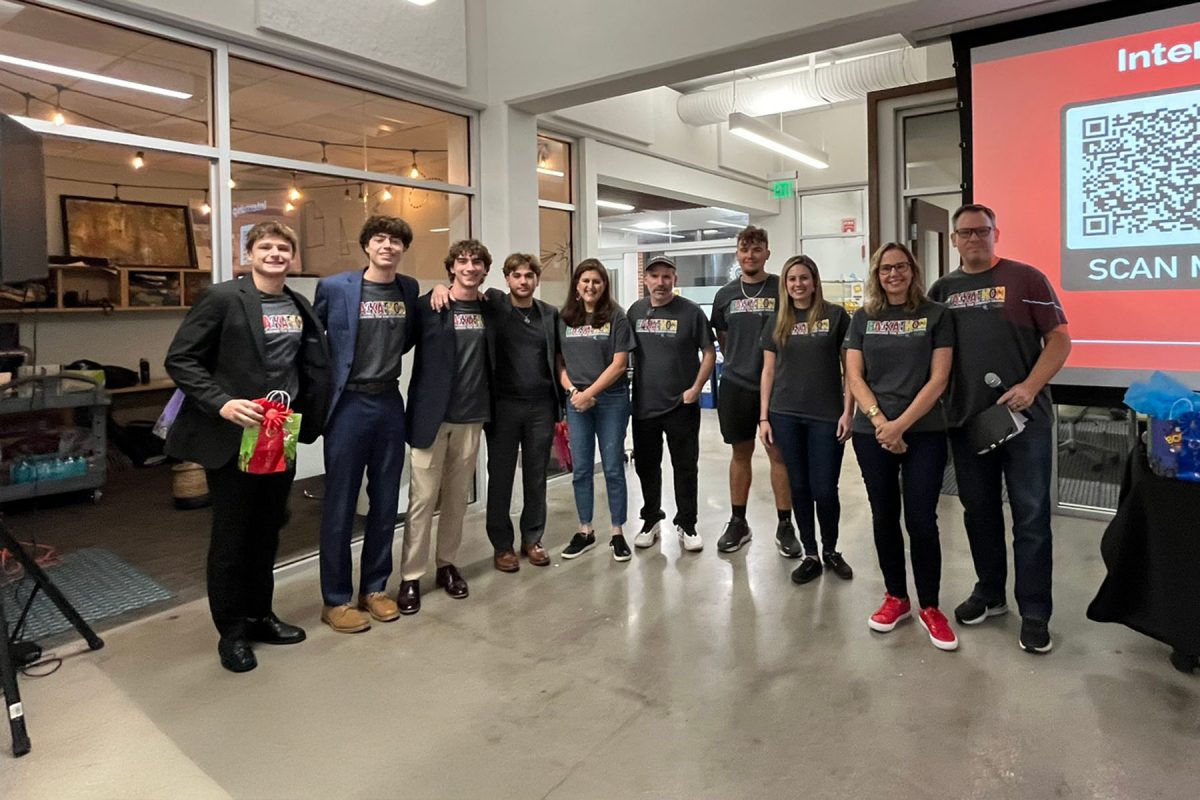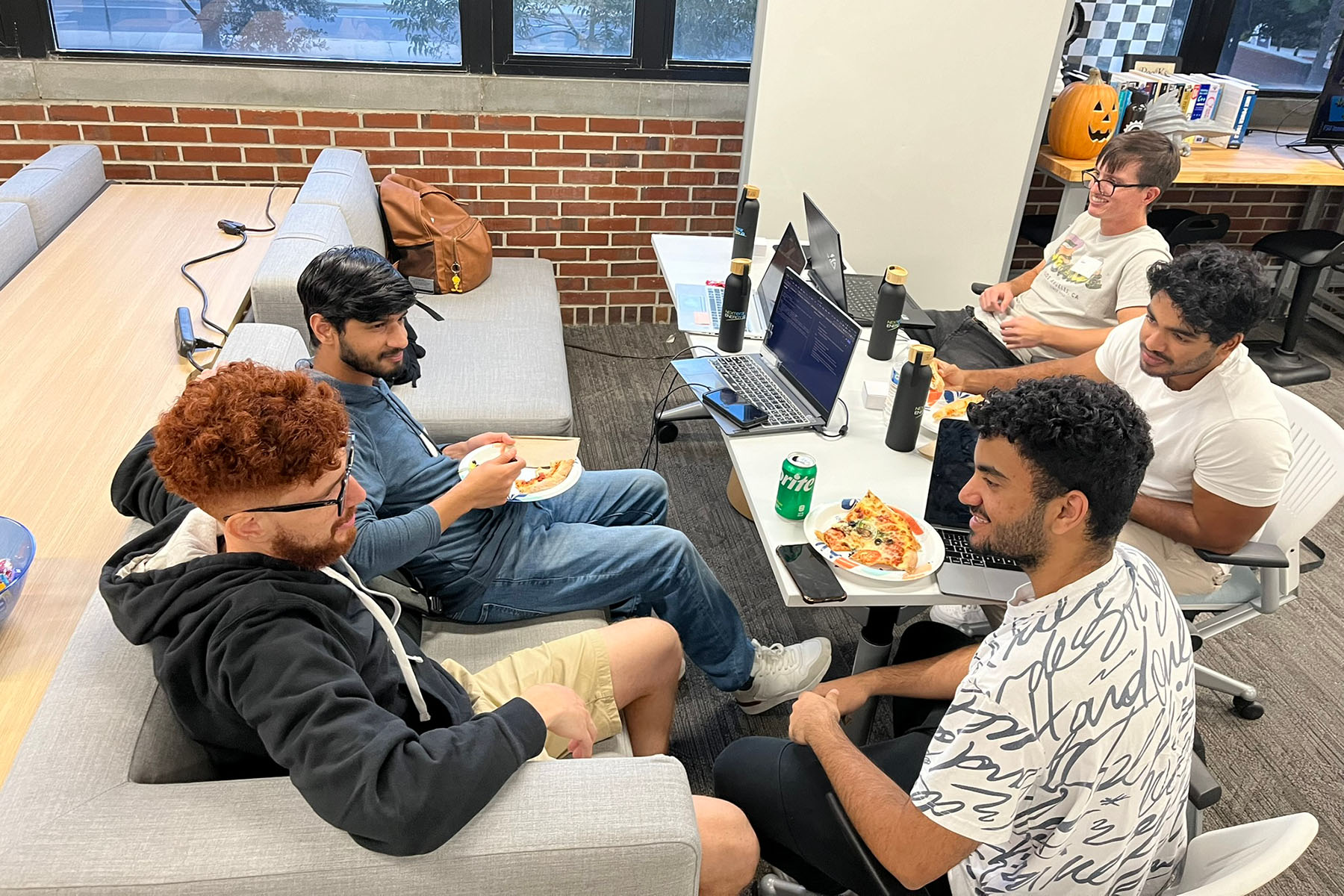
Florida State University recently hosted a 24-hour Energy Hackathon in collaboration with NextEra Energy, the parent company of Florida Power & Light, at the FSU Innovation Hub.
The event, themed “Superheroes of Innovation,” challenged participants to develop innovative solutions to help homeowners reduce energy consumption by 10 percent across Florida.
FSU Innovation Hub hackathons are interdisciplinary, recruiting students from all majors and welcoming all types of solutions, with no coding required, and are also called Design Sprints due to the use of Design Thinking for innovation.
“The Hackathon was an incredible opportunity for FSU students to apply their skills and creativity to real-world problems. Seeing our students tackle such a significant challenge with enthusiasm and ingenuity was truly inspiring.”
— Ken Baldauf, director of the FSU Innovation Hub
“The Hackathon was an incredible opportunity for FSU students to apply their skills and creativity to real-world problems,” said Ken Baldauf, director of the FSU Innovation Hub. “Seeing our students tackle such a significant challenge with enthusiasm and ingenuity was truly inspiring.”
The event brought together 50 students from various majors, forming 10 interdisciplinary teams to tackle the challenge using design thinking methodologies. Students were able to engage in research, ideation, prototyping and pitch preparation, all while having access to experts for guidance and support.
Over the course of the 24-hour event, students had the opportunity to network with peers and industry professionals, explore internships and career paths, deepen their industry knowledge and refine critical skills in communication, collaboration, problem-solving and public speaking.
To determine the winner, students participated in a 3-minute presentation where teams pitched their ideas to the judges, followed by a 2-minute Q&A session. These presentations included a prototype to demonstrate how their solution would be utilized.
During the event, the team pitched several innovative solutions: an AI app offering personalized energy scores and saving tips, fast charging stations for EVs with quick battery swaps, a red outlet providing solar-harvested power during outages, geothermal AC and heating systems to reduce energy waste, and smart blinds to manage energy loss by controlling window heat.
First place was awarded to the team “Agents of S.H.I.E.L.D,” which included students Daniel Cook, Kensia Saint-Hilaire, McKayla Harris and Dorien Fertil. Each team member received $300 for developing a home device and app that provides real-time circuit data, allowing homeowners to monitor energy use and appliance health.
Second place went to “ShadE,” with team members Donovan Stonebreaker, Alexander Schneier, Matthew Koziol and Kenneth Camacho. They earned $200 each for designing an innovative shade that regulates temperature by keeping heat in or out and uses AI to automatically adjust the blinds based on UV levels.
Third place was claimed by “AEGIS,” featuring Mark Lerner, Eric Bennett, Linh Nguyen, Isaiah Rohrer and Hoang Vu, who received $100 per team member for their concept of a device that actively monitors household appliances and utilizes AI to predict failures.
“NextEra truly values our partnership with the FSU faculty and students and hackathon events are a great opportunity to meet the talented students on site, tap into their creative spirit and witness the collaboration that drives transformation,” said Kristi Baldwin, information technology executive director, Florida Power & Light. “We had a great opportunity to share our mission and discuss innovative opportunities to leverage technology and design thinking to continue to evolve and drive value for our customers as we look at energy in the home.”
In addition to the team pitches, there were 25 solutions submitted by individuals, highlighting the creativity and innovation of FSU students, with solutions ranging from physical inventions to software applications and services.
“The nature of the event allowed us to fully focus and feel like we were part of something bigger,” said Pixit Taylor, an FSU computer science major and Innovation Hub intern. “From this experience, I learned how to better communicate with professionals about problem-solving and presenting my ideas. My team and I are already planning our strategy for the next hackathon and eagerly awaiting the next event.”
For more information, visit innovation.fsu.edu/superheroes.




